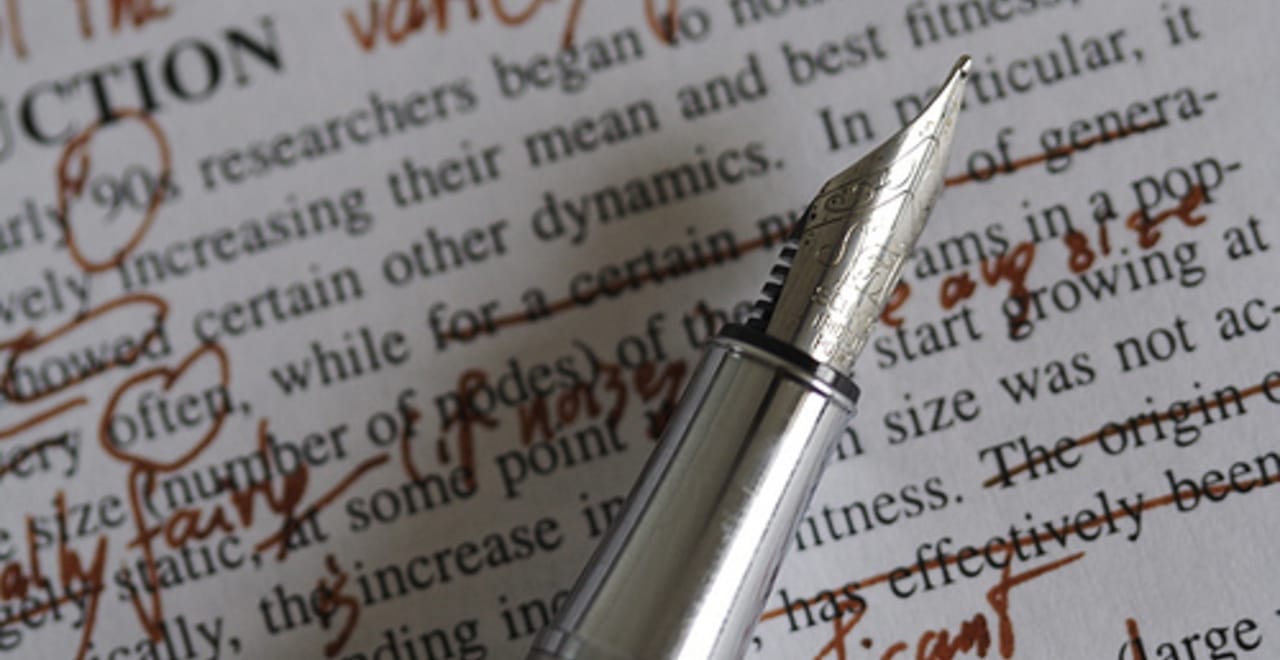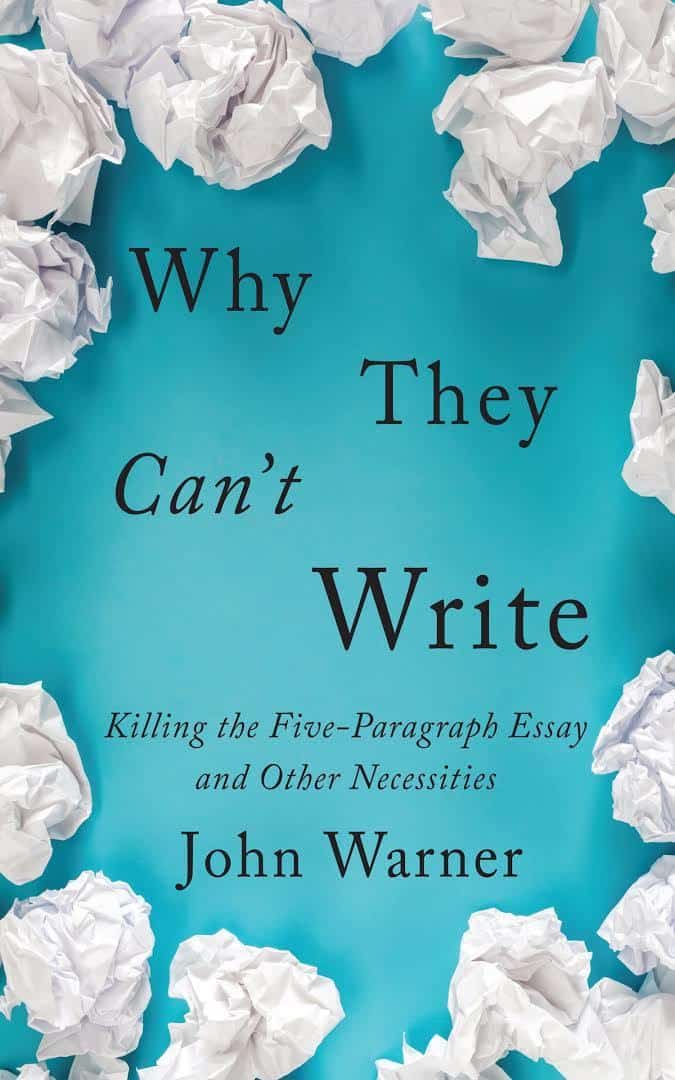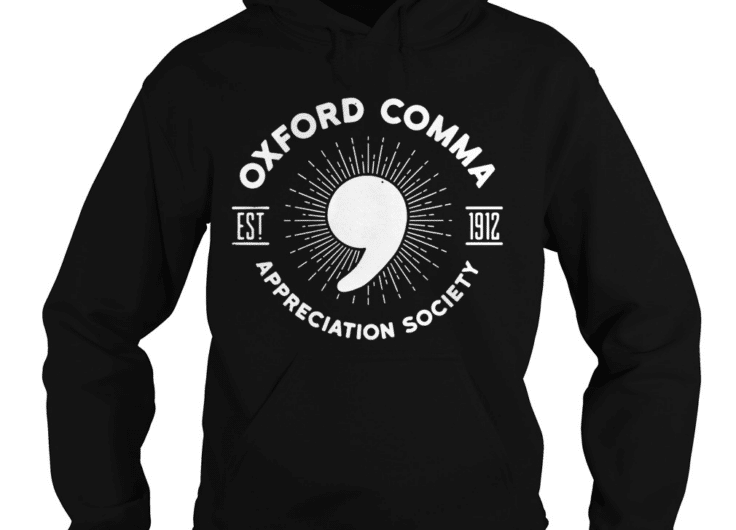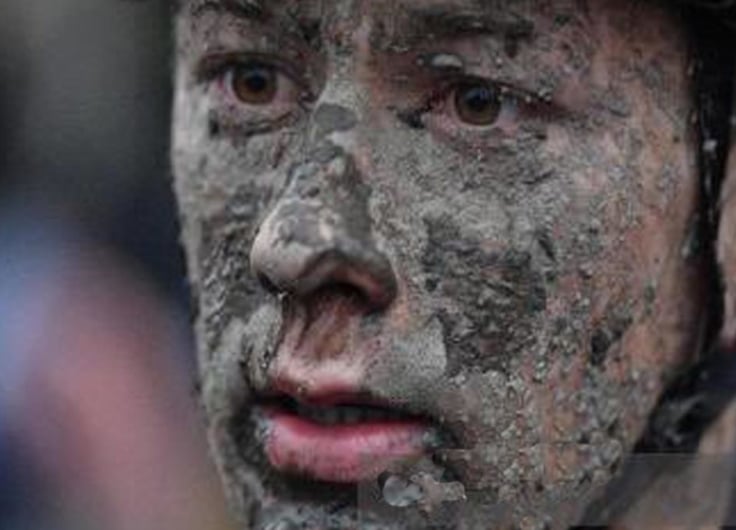Pals, Stop Complaining About Student’s Language Skills!
Linguist Fieke Van der Gucht reads and listens, and writes about what strikes her in our use of the Dutch language. This month: grouches and people who complain about the deterioration of students’ language skills. Couldn’t it be that grammar grouches are forgetting the fact that writing is a complex learning process?
I don’t like whining, especially not when it is about language. In that respect, it is somewhat unfortunate that I studied linguistics. Even less fortunate is the fact that I am the part-time coordinator of Taalonthaal, the writing centre of Ghent University. Students can go there for help with academic writing that doesn’t flow well. There are texts that get stuck because they are unstructured, falter because of inappropriate style, get disrupted because of incorrect spelling, or combine all of the above. While discussing their writing, the students and I try to improve their crooked sentences.

As a writing coach, I appear to be the right person that grammar grouches come to for their moaning and groaning. By this, I don’t mean ‘my’ students, but their teachers. They claim the level of language proficiency is deteriorating, and continuous to year after year after year after year. The argumentation in student papers, nowadays, is moving in vicious circles, unusual structures emerge, the style is all over the place, and no verb appears without spelling mistake. I conclude from this that back in the days, clear arguments were offered in texts that were flawless both in style and form of speech
As a writing coach, I appear to be the right person that grammar grouches come to for their moaning and groaning.
Those students of today were already around back then. Adams Sherman Hill, a journalist and professor of rhetoric at Harvard University already felt vicariously ashamed in 1878.
‘Everyone who has had much to do with the graduating classes of our best colleges has known men who could not write a letter describing their own commencements without making blunders which would disgrace a boy twelve years old.’
Closer to home, Désireé Pissens and Juliaan Festraet rolled their eyes and wrote in the Catholic textbook Taalgroei
from 1924: ‘How is it possible, one wonders, that our boys, after high school, […], do not master their own mother tongue?’
Mediocre writers
Couldn’t it be that grammar grouches forget that writing is a complex learning process? Could it be that they have forgotten how they themselves got better at it throughout the process? I myself have written a doctoral thesis that was full of nominalizations and discontinuous constructions, long introductory phrases or sentences that ran too long. Only later, when I started working in the cultural sector, I learned to write in a more accessible way.
Do teachers ever look at themselves?
Furthermore, language teachers often have a naturally above-average talent for writing. Perhaps for the sake of convenience, they forget that ‘in their time’, there were already mediocre and bad writers that would excel in something else. Did they ever look at themselves? For instance, I have noticed that the products of vague writing are sometimes connected with unclear project descriptions.
Whether faltering writing skills have in fact always been the case or is merely a recent trend: science doesn’t know either. For every study that raises concerns, there is another one that dismisses it as a false alarm. An De Moor of Odisee University of Applied Sciences claimed in De Standaard of 21 May 2019, based on a language test analysis, that first-year students ‘do not sufficiently comprehend the structure of a text’ and ‘find it increasingly difficult to distinguish between formal and informal language use’. At the same time, there are also studies that nuance the language decline. In Why They Can’t Write author John Warner refers to research by Lunsford & Lunsford, who examined students’ writing products between 1917 and 2008. They found that the number of errors against written language skills remained consistent over the years.

Enrichment of language deterioration
I don’t like whining, especially not when it is about language. Last year I let myself be talked into it again. I was asked if I would be interested in giving a talk to students about language skills. It kept getting worse, right? The organizers had already thought of the title: Language degradation or enrichment: that’s the question. I eventually replaced the title with Enrichment of language deterioration: that’s the spirit.
Whether or not language proficiency is deteriorating is not a crucial question for me, I explained, because language deficits have in fact always been the case. How to improve language proficiency is a topic I would like to break open: by developing a language policy, by setting up language learning trajectories, by teaching language development, by extra support from writing centres. Finally, I said that I would be happy to answer questions, as long as they weren’t nagging questions. The audience remained silent and applauded politely. Then I could go into the sun. In my world, it rarely rains.







